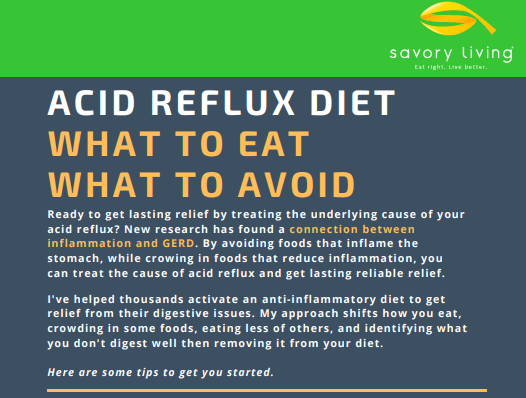Discover how simple dietary changes can help ease the discomfort of acid reflux and improve your overall digestive health.
Table of Contents
Intro: Understanding Acid Reflux
In simple terms, acid reflux is when the acid from your stomach travels back up into your esophagus, causing a burning sensation in your chest known as heartburn. It can be uncomfortable and bothersome, but the good news is that there are ways to ease this discomfort through simple changes in your diet.
What Happens in Your Body?
When you eat, food goes down your throat and into your stomach to get digested. Your esophagus is like a long tube that connects your throat to your stomach. Sometimes, the acid from your stomach can travel back up this tube, causing a problem called acid reflux.
Your Esophagus and Stomach
Your esophagus plays an important role in helping food reach your stomach smoothly. However, if stomach acid travels back up, it can irritate the lining of your esophagus. This can lead to discomfort and a burning feeling in your chest. It’s not a pleasant experience!
This discomfort is what we call acid reflux, which can affect your esophageal health and make swallowing feel tricky. So, it’s important to take care of your tummy to keep your esophagus happy and healthy!
Foods to Eat for Acid Reflux
When you have acid reflux, it’s important to pay attention to the foods you eat. By choosing the right foods, you can support your esophageal health and reduce the discomfort caused by GERD. Let’s take a look at some friendly foods that can help you manage your acid reflux symptoms.

Image courtesy of via Google Images
Friendly Foods
1. Vegetables: Vegetables like broccoli, carrots, and green beans are gentle on your stomach and provide essential nutrients to keep your body healthy.
2. Grains: Whole grains such as oatmeal, brown rice, and quinoa are great choices for those with acid reflux. They are easy to digest and can help you feel full without triggering symptoms.
3. Lean Proteins: Chicken, fish, and tofu are good sources of protein that are less likely to cause heartburn. Avoid frying these proteins and opt for baking, grilling, or steaming instead.
4. Fruits: Bananas, apples, and melons are excellent choices for a snack or dessert. These fruits are low in acid and can soothe any irritation in your esophagus.
5. Oatmeal: Oatmeal is a great breakfast option for those with acid reflux. It’s filling, low in acidity, and can help absorb excess stomach acid.
By incorporating these foods into your diet, you can support your esophageal health and reduce the frequency and intensity of your acid reflux symptoms. Remember to pair these foods with mindful eating habits, such as eating slowly and avoiding large meals, to further ease your discomfort.
Foods to Avoid
When it comes to managing acid reflux, it’s essential to know which foods can trigger uncomfortable symptoms. Certain foods can aggravate your stomach and lead to more frequent episodes of acid reflux, making it important to avoid them if you want to feel better.
Common Culprits
Some of the most common foods that can trigger acid reflux include spicy meals, fatty foods, citrus fruits, chocolate, caffeine, and carbonated beverages. These foods can relax the muscle at the bottom of the esophagus, allowing stomach acid to flow back up and cause discomfort.
Spicy meals, in particular, can irritate the stomach lining and esophagus, leading to a burning sensation and worsened acid reflux symptoms. Fatty foods take longer to digest, which can increase the risk of acid reflux as they stay in the stomach for a longer period of time.
Citrus fruits like oranges, grapefruits, and tomatoes are acidic in nature and can also trigger acid reflux symptoms for some individuals. Chocolate and caffeine can relax the lower esophageal sphincter, which can allow stomach acid to rise back up into the esophagus.
By avoiding these common culprits and opting for GERD-friendly foods instead, you can help reduce your chances of experiencing uncomfortable acid reflux symptoms and support your esophageal health in the long run.
How Meals Play a Role
When it comes to managing acid reflux and keeping your tummy happy, the timing and size of your meals can make a big difference. By paying attention to what and when you eat, you can help control your symptoms and feel more comfortable throughout the day.

Image courtesy of via Google Images
Size and Frequency
Instead of having three large meals a day, try breaking them up into smaller, more frequent meals. This can help prevent your stomach from getting too full, which can trigger acid reflux. Eating smaller portions more often can also help with digestion and keep your stomach happy.
Importance of Hydration
In managing acid reflux, one key element that often gets overlooked is hydration. The simple act of drinking enough water can make a big difference in how you feel and how your body handles the effects of acid reflux.
The Power of Water
Water is not just essential for staying hydrated; it also plays a crucial role in supporting good digestion and maintaining esophageal health. When you drink enough water throughout the day, it helps to dilute stomach acid and prevent it from causing discomfort in your esophagus.
Proper hydration can also aid in the overall functioning of your digestive system, making it easier for your body to process food and reducing the likelihood of acid reflux symptoms. By staying well-hydrated, you are giving your body the best chance to manage the effects of acid reflux effectively.
Other Helpful Habits
Aside from adjusting your diet to manage acid reflux, there are some other daily habits you can incorporate to help with heartburn relief and improve your esophageal health. These simple lifestyle changes can make a big difference in how you feel.

Image courtesy of via Google Images
Lifestyle Tips
One helpful habit is to stand up after eating instead of lying down. When you stand up, gravity can assist in keeping stomach acid from flowing back up into your esophagus, reducing the chances of experiencing heartburn. It may also be beneficial to avoid tight clothing that puts pressure on your stomach, as this can exacerbate acid reflux symptoms.
Understanding Stomach Ulcers
Stomach ulcers are like little sores that can develop inside your stomach, causing discomfort and pain. These ulcers are often related to acid reflux, a condition where stomach acid flows back up into the esophagus.
| Food | Benefit |
|---|---|
| Lean Proteins | Helps reduce acid reflux symptoms |
| Whole Grains | High in fiber, aids digestion |
| Fruits | Low in acid, provides vitamins |
| Vegetables | Helps maintain optimal pH levels |
| Healthy Fats | Supports digestion, reduces inflammation |
| Herbal Tea | Soothes the digestive system |
What Are Stomach Ulcers?
Imagine your stomach as a balloon with a protective lining on the inside. Sometimes, this lining can get irritated and develop a sore, which is called an ulcer. Stomach ulcers can be caused by bacteria, certain medications, or excessive acid production in the stomach.
When to See a Doctor
If you’re dealing with acid reflux and following a healthy diet plan but still experiencing discomfort, it may be time to seek help from a doctor. While most cases of acid reflux can be managed through diet and lifestyle changes, some situations require medical attention to prevent further complications.

Image courtesy of via Google Images
Symptoms to Watch For
If you notice persistent symptoms such as severe chest pain, difficulty swallowing, unexplained weight loss, or ongoing stomach pain, it’s essential to consult a doctor. These signs could indicate more serious issues beyond simple acid reflux, such as esophageal damage or gastritis.
Your doctor can evaluate your symptoms, determine the underlying cause, and recommend the appropriate treatment to help you find relief and protect your esophageal health. Remember, it’s always better to address any concerns early on rather than waiting for the problem to escalate.
Summing Up: Your Happy Tummy Plan
Now that you’ve learned all about acid reflux and how it can affect your stomach and esophagus, let’s put together a plan to keep your tummy happy and healthy. By making smart food choices and adopting good habits, you can manage your acid reflux symptoms and prevent discomfort.
Your Diet Matters
Remember to focus on foods that are gentle on your stomach and esophagus. Opt for vegetables, whole grains, lean proteins, and healthy fats. These foods support your esophageal health and can help prevent acid reflux.
Watch Out for Triggers
Avoid spicy, fatty, and acidic foods that can trigger your acid reflux symptoms. By steering clear of these common culprits, you can reduce the chances of discomfort and heartburn.
Timing is Key
Instead of big meals, try eating smaller portions more frequently throughout the day. This can help prevent excess stomach acid production and minimize the likelihood of reflux.
Stay Hydrated
Keep a water bottle handy and sip on water or non-caffeinated drinks throughout the day. Proper hydration is essential for good digestion and can also soothe your esophagus.
Healthy Habits Count
Don’t forget about the other lifestyle changes that can make a big difference. Simple habits like staying upright after eating and avoiding late-night snacks can help with heartburn relief and overall esophageal health.
By following these tips and tricks, you can create your very own happy tummy plan that keeps acid reflux at bay. Enjoy your meals without worrying about discomfort, and live your best, healthiest life!
FAQs
Can I still have snacks if I have acid reflux?
Yes, you can still enjoy snacks even if you have acid reflux, but it’s essential to choose the right ones. Opt for healthy snacks like fruits, vegetables, or whole grains that are gentle on your stomach. Avoid spicy or greasy snacks that can trigger acid reflux symptoms.
Does drinking milk help with heartburn?
While some people find relief from heartburn by drinking milk, it’s not the best long-term solution. Milk may provide temporary relief by coating the esophagus, but it can also stimulate acid production in the stomach, worsening symptoms for some individuals.
Why does my chest hurt sometimes after I eat?
If your chest hurts after eating, it could be a sign of heartburn. Heartburn occurs when stomach acid flows back up into the esophagus, causing a burning sensation in the chest. Certain foods, overeating, or eating too quickly can trigger heartburn symptoms, leading to chest discomfort.





